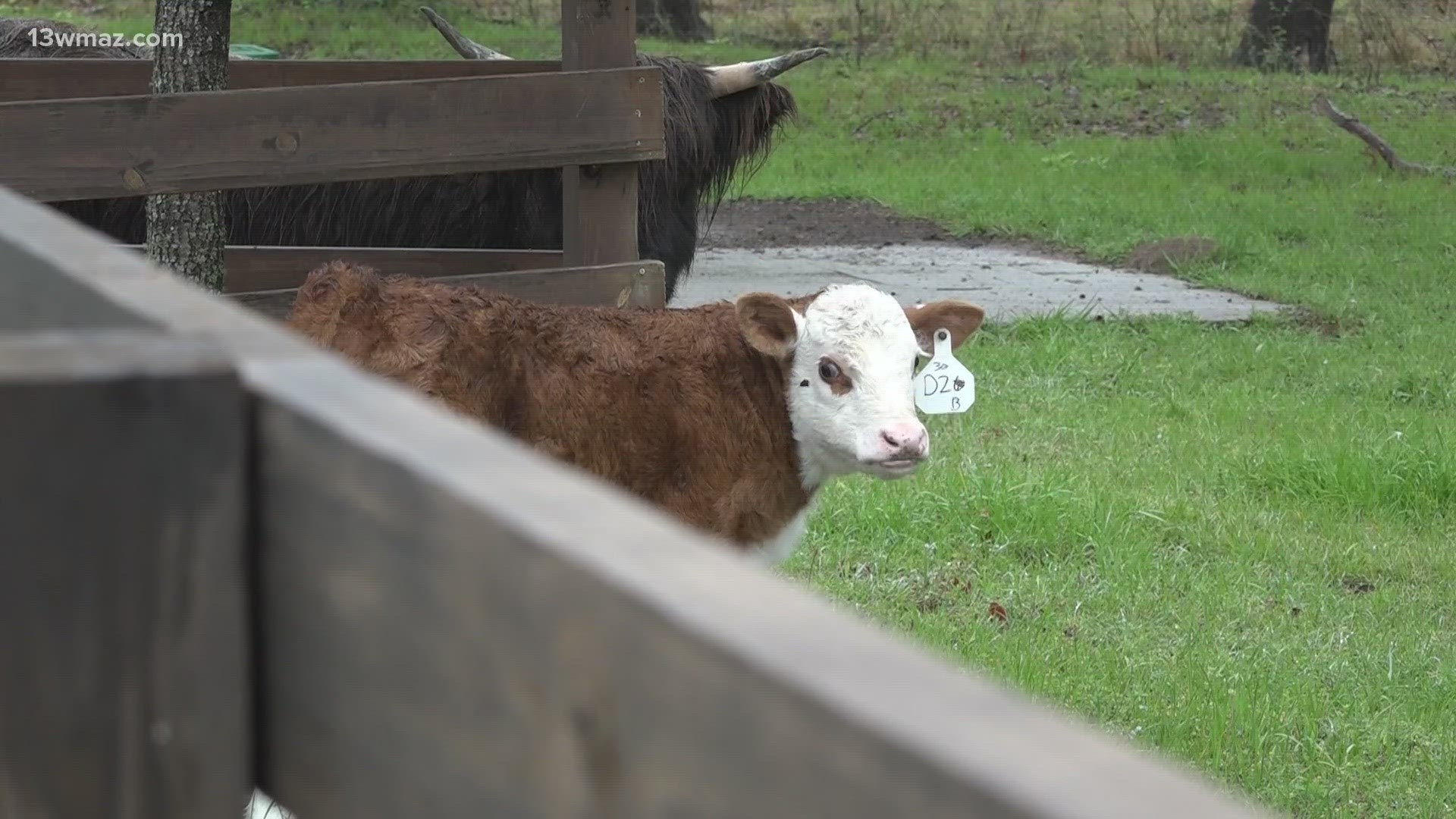MILLEDGEVILLE, Ga. — David Glisson is the owner of Driven Farms in Milledgeville.
For the past five years, Glisson has focused on keeping his cattle organic and free from harmful substances, so he can serve the best meats to his customers.
"That's why I got into it and I love nature. And then when I found out there was a problem with some of our food, I wanted to improve that," Glisson said.
Glisson's cattle are rotated to different parts of the farm to keep them healthy and improve the soil and nurture the ecosystem. Everything Glisson does for the farm goes back to the people he sells to.
When big corporate farms don't keep their land clean, he says it can harm people.
"They put thousands of animals on dirt fields. There's no grass and because they're on dirt fields and they're on feces and they're on manure all that stuff, they get sick," Glisson said.
Two weeks ago, the U.S. Department of Agriculture was funded for the 2024 fiscal year. Through the Inflation Reduction Act, funds are allocated to the USDA. Those funds are used for many programs that USDA offers. One of the programs it helps fund is the Conservation Programs.
The Conservation Program can involve drinking water protection, reducing soil erosion, wildlife habitat preservation and more. Investment in agriculture conservation investment was dropped to $20 billion from the original $28 billion it was supposed to receive.
Glisson says making sure his cattle are healthy starts with the land that he takes care of.
"They eat grass, which is no value to a human being, right? There's no nutritional value. We're not going to eat grass. The cows do it, they turn that into beef. That's the most nutrient-dense food you can consume. You can practically live off of red meat. So there's so many different things we can talk about here on why it's important to fund or help fund because it helps us all, it's not just helping a farmer," Glisson said.
Glisson has a passion for what he does. He didn't know about all of the funding opportunities the USDA offered. But for farmers like him, not having the funds means he can't take care of his land the way he wants.
"Equipment cost is astronomical. One tractor to run a farm like this and we need like probably three is well into the six-figures. $150,000, $140,000 and they don't last that long," Glisson said.
For now, Glisson says he's looking towards the future. By giving back to his family, helping his wife take care of The Dogwood Barn-Wedding Venue and helping the environment.

